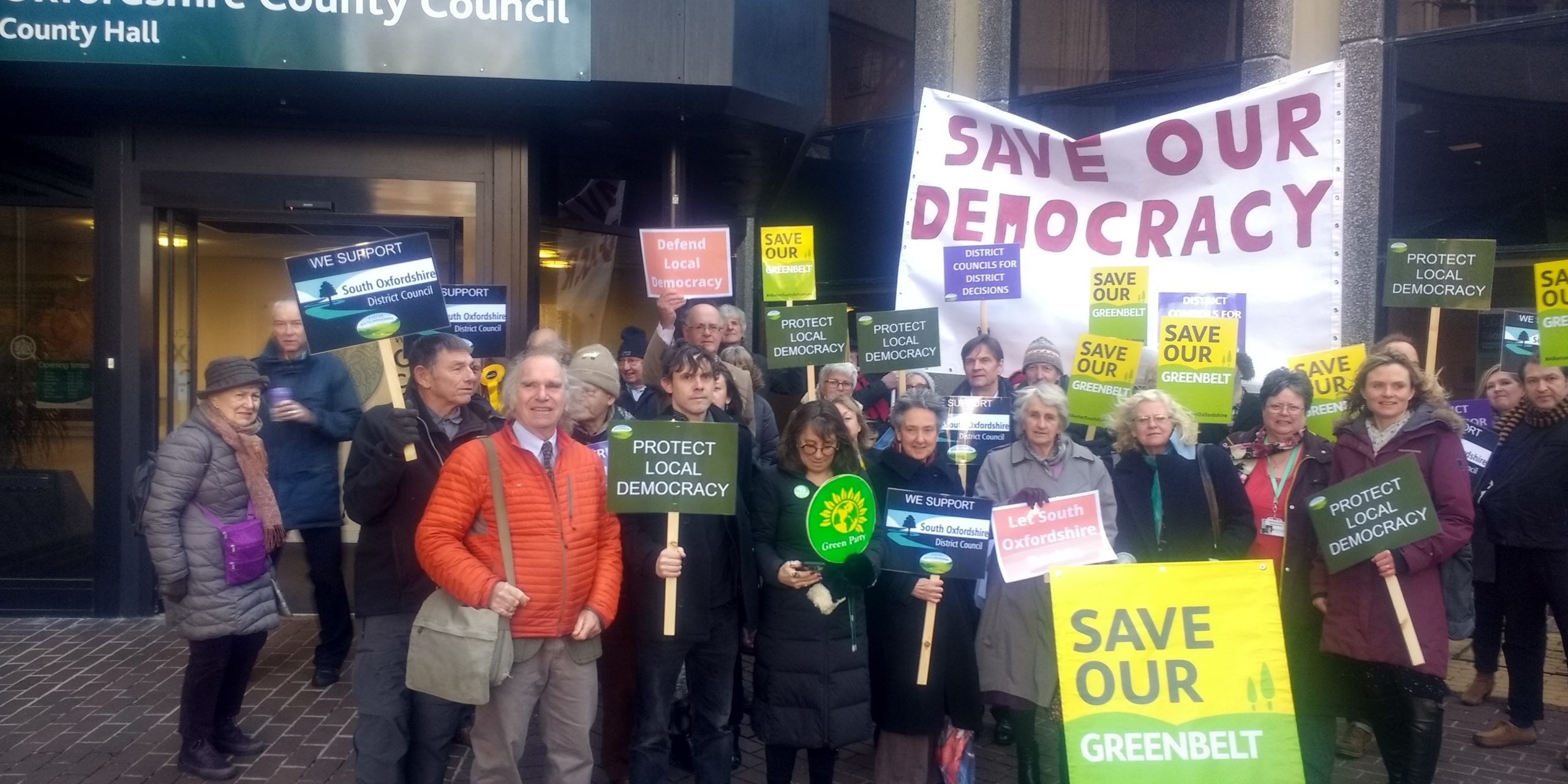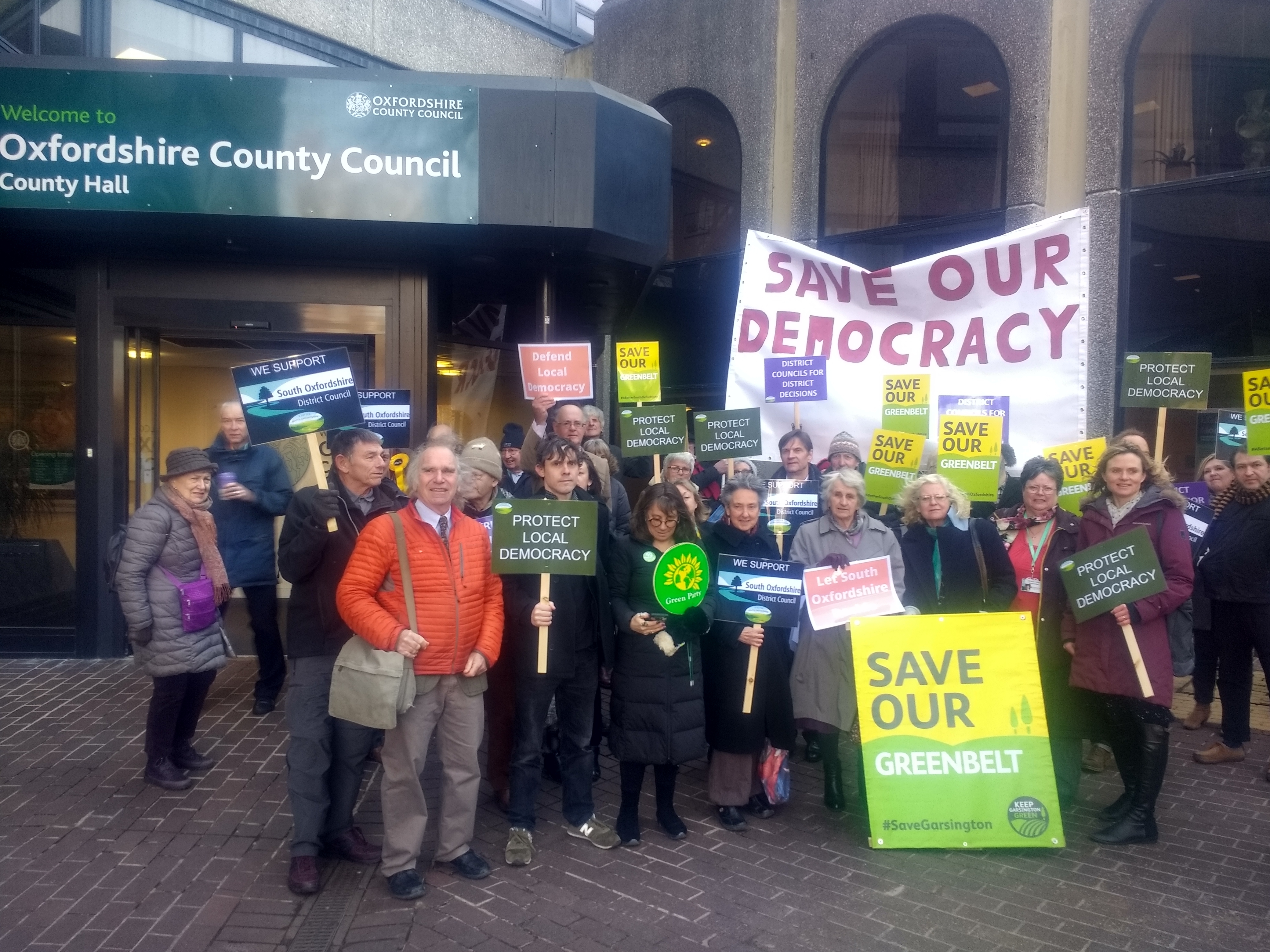‘Death of Localism’ Government Reforms would devastate Local Planning System

29th September 2020

Countryside campaigners CPRE Oxfordshire have said Government planning reforms would significantly undermine local democracy and put the countryside at risk.
** STOP PRESS ** Our ’10-Minute Guide’ on how to respond to the Government’s Planning for the Future White Paper now available.
(SEE FOOT OF PAGE.)
The Government’s Planning for the Future White Paper is out for consultation until 29 October. A further consultation on changes to the way housing numbers are calculated closed on 1 October.
Key changes include:
– A top-down imposition of housing numbers – a national Government target would be allocated to local authorities on the basis of an unreliable algorithim, committing Oxfordshire to exponential growth. Read more here.
– Community engagement would be largely restricted to the Local Plan making stage (as it stands, just one six-week consultation!), with the public thereafter losing their ability to scrutinise most individual planning applications.
– The introduction of a zonal planning system also raises questions. Would the zoning have to take more account of the number of houses to be built than it would of the need to protect the environment? How could broad brush zoning work in a crowded island where environmental assets are mingled with development? How will it impact on broader plans such as Oxfordshire 2050? How will our Neighbourhood Plans be affected? None of these matters are addressed.
– Development management policies, which cover issues such as noise, air and light pollution, rights of way and heritage, would all be set centrally with no apparent scope for local place-based planning.
– New settlements, such as garden towns and villages, would be taken out of the Local Plan system and be considered under national infrastructure rules – this would mean limited local say on any future projects like the settlements proposed at Eynsham or Chalgrove.
Helen Marshall, Director, CPRE Oxfordshire, said: ‘We think planning is best done at a local level, allowing people to have a say over both the quantity and quality of development and to hold their locally elected representatives to account. That’s the best way to develop real communities, with the right housing in the right place.
By contrast, these reforms would centralise the system to the point that we might not even be able to decide the colour of the doors, although we do know there will be an awful lot of them!’
CPRE Oxfordshire is urging people to respond to the consultation and share concerns with local MPs.
Countryside campaigners CPRE Oxfordshire have said Government planning reforms would significantly undermine local democracy and put the countryside at risk.
The Government’s Planning for the Future White Paper is out for consultation until 29 October1. A further consultation on changes to the way housing numbers are calculated closes on 1 October2.
Key changes include:
– A top-down imposition of housing numbers – a national Government target would be allocated to local authorities on the basis of an unreliable algorithim3, committing Oxfordshire to exponential growth.
– Community engagement would be largely restricted to the Local Plan making stage (as it stands, just one six-week consultation!), with the public thereafter losing their ability to scrutinise most individual planning applications.
– The introduction of a zonal planning system also raises questions. Would the zoning have to take more account of the number of houses to be built than it would of the need to protect the environment? How could broad brush zoning work in a crowded island where environmental assets are mingled with development? How will it impact on broader plans such as Oxfordshire 2050? How will our Neighbourhood Plans be affected? None of these matters are addressed.
– Development management policies, which cover issues such as noise, air and light pollution, rights of way and heritage, would all be set centrally with no apparent scope for local place-based planning.
– New settlements, such as garden towns and villages, would be taken out of the Local Plan system and be considered under national infrastructure rules – this would mean limited local say on any future projects like the settlements proposed at Eynsham or Chalgrove.
Helen Marshall, Director, CPRE Oxfordshire, said: ‘We think planning is best done at a local level, allowing people to have a say over both the quantity and quality of development and to hold their locally elected representatives to account. That’s the best way to develop real communities, with the right housing in the right place.
By contrast, these reforms would centralise the system to the point that we might not even be able to decide the colour of the doors, although we do know there will be an awful lot of them!’
CPRE Oxfordshire is urging people to respond to the consultation and share concerns with local MPs.
Planning for the Future White Paper – a 10 Minute Guide to Responding
